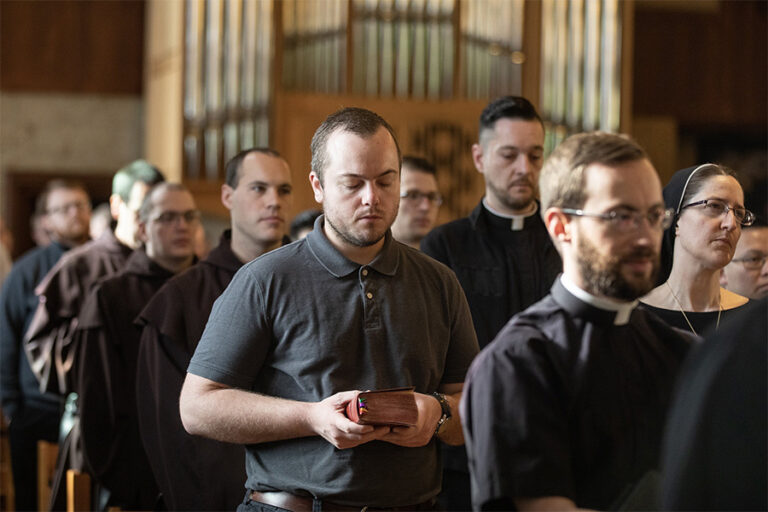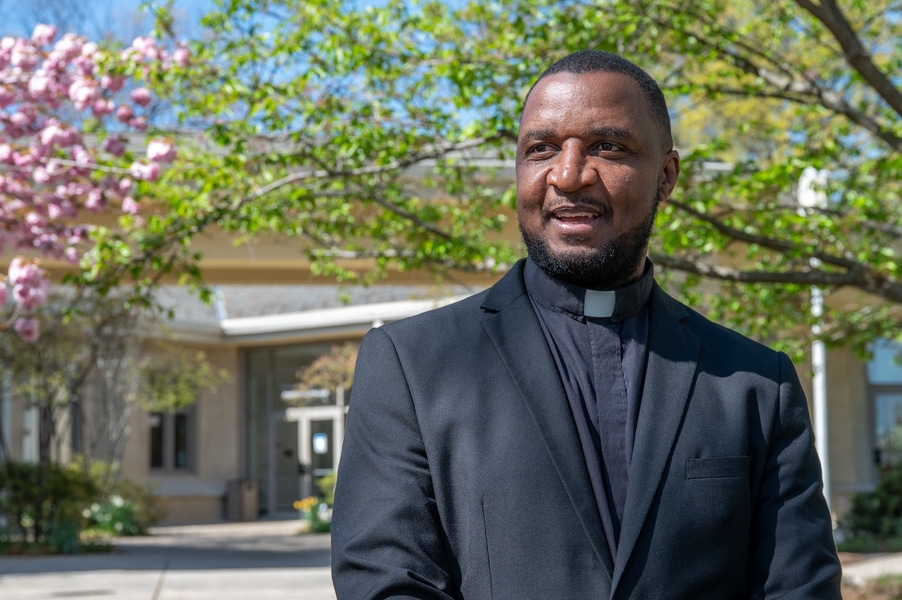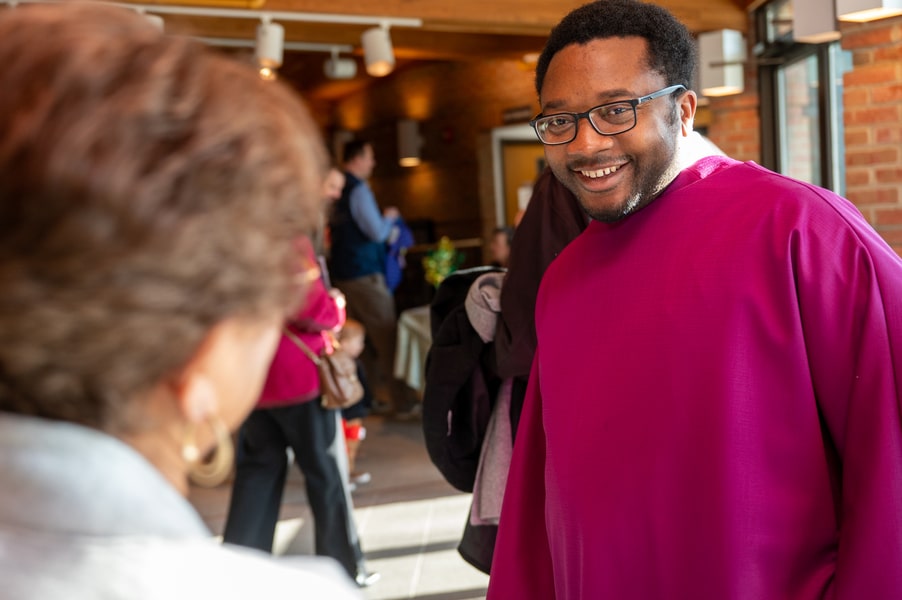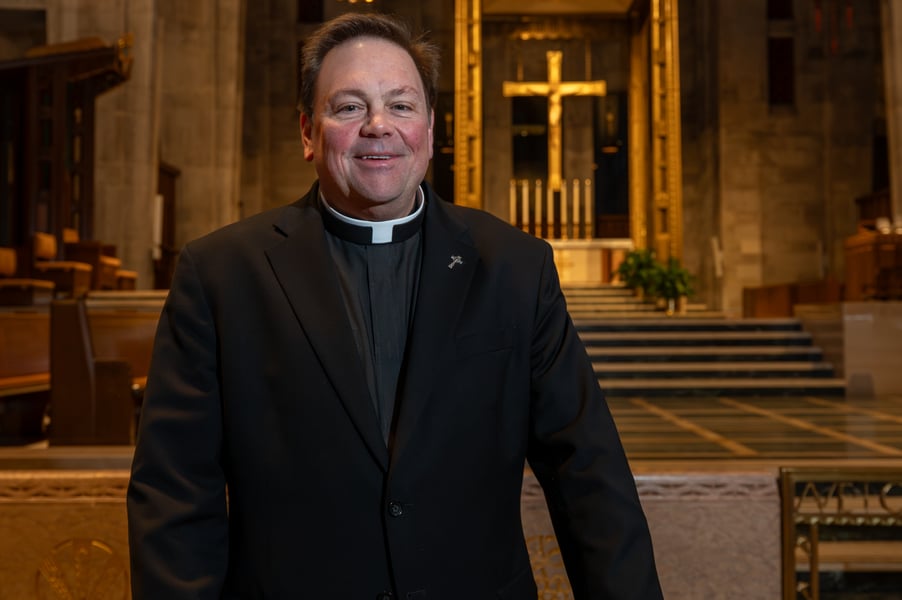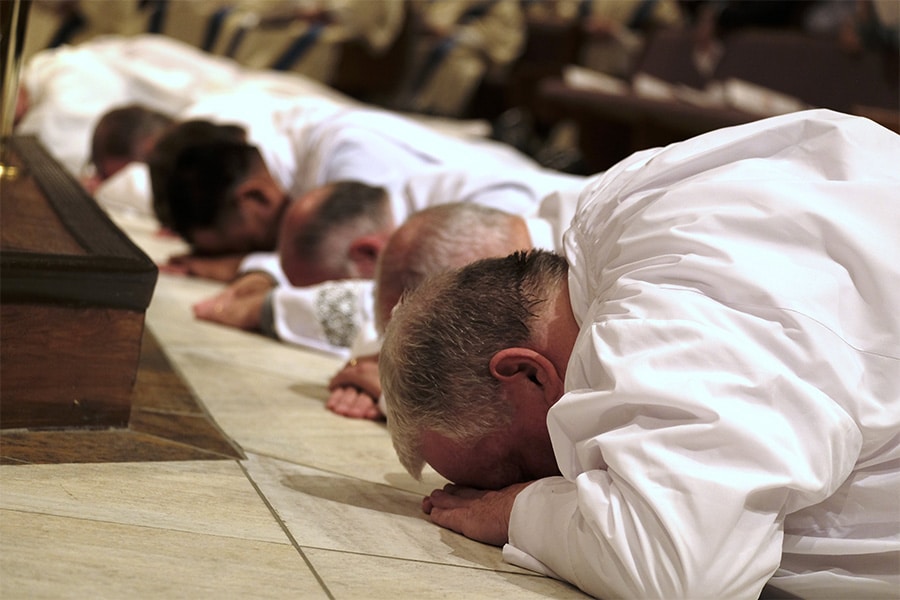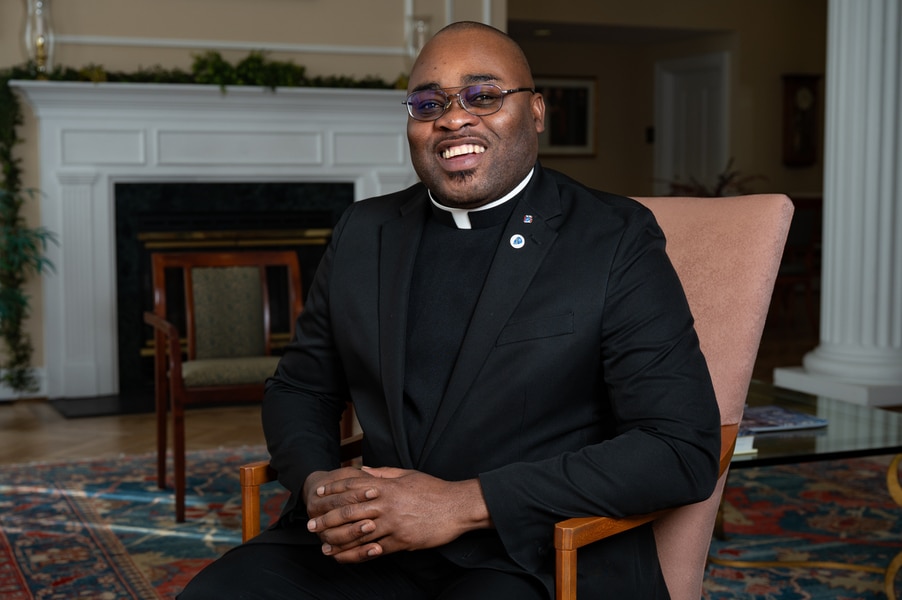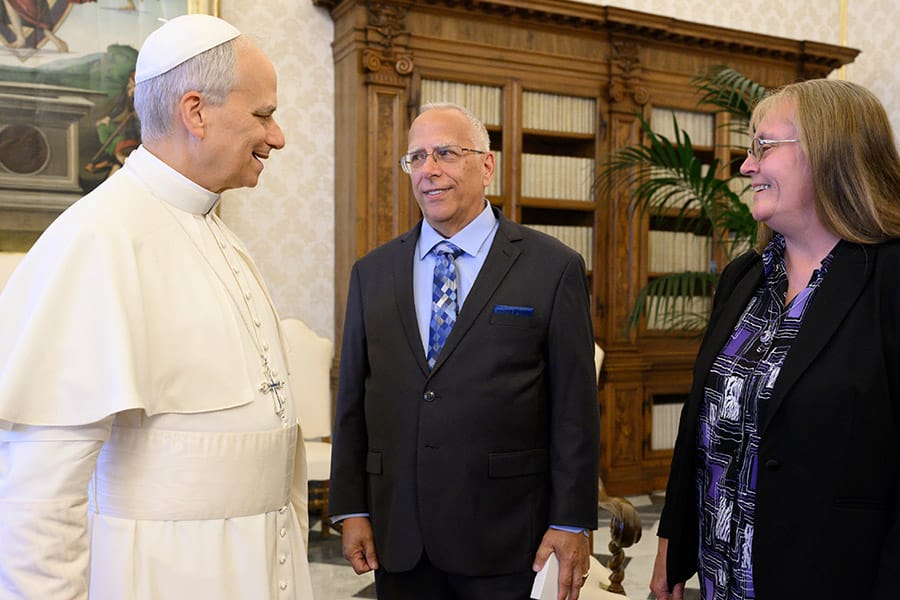ST. MEINRAD, Ind. (OSV News) — One of the biggest changes in priestly formation in the Catholic Church in a generation is gaining traction at St. Meinrad Seminary and School of Theology in St. Meinrad.
The sixth edition of the U.S. Conference of Catholic Bishops’ Program of Priestly Formation, or PPF, which began to be implemented last year, mandates a “propaedeutic” (pro-pih-DOO-tic) stage for all men first entering into seminary.
The PPF lays out norms for human formation, spiritual formation, intellectual formation and pastoral formation and for community. It also includes norms for the continuing evaluation of seminarians.
Father Eric Augenstein, director of seminarians for the Indianapolis Archdiocese and pastor of Nativity of Our Lord Jesus Christ Parish in Indianapolis, described what “propaedeutic” means and the overall purpose of the program.
“Propaedeutic as a word means ‘preparatory,'” he explained in an interview with The Criterion, Indianapolis’ archdiocesan newspaper. “It’s a Greek word that means ‘teaching in advance.’ So, it’s a year of preparation.”
“It’s really seen as a year of transition from the world — whether it was high school, college or the workforce — to an intentional seminary formation environment,” he said. “It’s a year of preparation for the full intensity of seminary formation, with a strong focus on community, human formation and growth in the spiritual life.”
St. Meinrad completed the first year of its propaedeutic program in May. All new seminarians will take part in a propaedeutic program. This can apply to those who are entering into a college seminary or to those who have already earned an undergraduate degree and are enrolling in a theology-level seminary, like St. Meinrad. For men in the latter case, the new propaedeutic program adds a year to their priestly formation. For those entering a college seminary, the propaedeutic program takes place during their first year.
St. Meinrad was one of the only seminaries in the country that launched a propaedeutic program a year ago. Ten men started in the program in August 2022. By the end of the academic year, there were five who had discerned to continue in formation for the next year, including two Indianapolis archdiocesan seminarians
The focus on human and spiritual formation in the propaedeutic stage is intended to lay a strong foundation for seminarians before they enter the rigors of a full slate of philosophy courses, as well as a pastoral ministry assignment the following year.
“Sometimes you can get into the seminary as a young man and be like, ‘I don’t know what just hit me,'” Father Augenstein said. “They may not be used to going to Mass every day. They’re not used to praying the Liturgy of the Hours every day. It can be a shock to the system.
“I think the propaedeutic stage is designed to ease that transition by making it happen in a smaller, more intentional community. They’re all going through it together and can support one another in it.”
Propaedeutic seminarians at St. Meinrad form a small cohort within the larger seminary community. They have their own chapel where on most days of the week they attend Mass and pray the Liturgy of the Hours together apart from the rest of the seminarians. At St. Meinrad, they also have their own dining hall. The seminarians also have formation conferences tailored just for them to help them enter more fully into discernment and learn more about themselves.
Seminarian Seth Hickey, a member of Mary Queen of Peace Parish in Danville, Indiana, completed St. Meinrad’s propaedeutic program. He said it was a time for him to learn about challenges in his own personality that he will explore more fully with the help of seminary formators as he continues in formation.
“It was very challenging — in good ways,” said Hickey. “I wouldn’t say those (challenges) are necessarily resolved, but I know what they are. I know what needs to be worked on and where I need to grow.”
As dean of St. Meinrad’s propaedeutic program, Benedictine Father Luke Waugh got to know Hickey and the other new seminarians.
“The formators get to know the guys a little more closely and understand their strengths and weaknesses,” he said. “They try to help them shore up their strengths and maybe overcome some of their weaknesses or put their weaknesses in a little different context so that they can see themselves more as God sees them. That’s key.”
Living together in a small community in the seminary was a good experience for Hickey. When he moved into St. Meinrad a year ago, he didn’t know any of the other propaedeutic seminarians. By the end of the year, he had forged a strong bond with them.
“Those guys are my brothers,” Hickey said. “They’re some of the best human beings that I’ve met. We were very tight and had each others’ backs. They’ve really been a blessing to me.”
The closeness of the seminarians in the program at St. Meinrad was fostered intentionally through them being largely set apart from the broader seminary community, said Benedictine Father Denis Robinson, St. Meinrad’s president-rector.
“It might not have happened otherwise if they were dispersed into the larger community,” he said. “Their being together in such an intentional way caused them to develop a deep relationship with one another.”
For Hickey, the building up of community among the propaedeutic seminarians at St. Meinrad contributed to his human formation. “I’m the kind of guy who has a tendency to try to go things alone,” Hickey said. “Being with them helped me realize that I don’t have to do that. I now have four different Simons of Cyrene to help me bear that cross, whatever it is. I don’t have to bear it alone.”
Another way that the propaedeutic program was designed to further the human and spiritual formation of the seminarians was by limiting their course work. In the past, new seminarians at St. Meinrad who had not gone to a college seminary would have taken a full load of philosophy courses. In the propaedeutic program, the seminarians study together classics of Western civilization and Catholic spirituality.
“This year gives them some breathing room to get familiar with the spiritual life, to learn to pray well and then to move into the academic components in the next year,” said Father Denis.
Seminarian Aidan Hauersperger, a member of St. Joseph Parish in Jennings County, experienced how the studies in the propaedeutic program at St. Meinrad were woven in closely with the rest of his formation.
“There was a cohesiveness,” he said. “All of the spiritual formation and intellectual formation were feeding into the same truth. Sometimes, I just forgot that the intellectual formation was there. It just felt like we were studying the spiritual things that we need to know.”
As the seminarians in the first year of Saint Meinrad’s propaedeutic program were on a pilgrimage of discernment and self-discovery throughout the year, it was fitting that it culminated in the seminarians traveling to Spain to walk for several days along the Camino. It is the historic pilgrimage path more than 1,000 years old that leads to Santiago de Compostela Cathedral at the northwest corner of Spain that is the burial place of the Apostle St. James.
And just as the seminarians faced their own personal challenges throughout the propaedeutic program — challenges that contributed positively to their formation — they also faced obstacles along the Camino.
On the first day of the pilgrimage, Hauersperger injured a foot and was only able to join his fellow seminarian pilgrims on the path on the final day as they entered the city of Santiago de Compostela. “I had a sense of pride and entitlement going into it. I said to myself, “Oh, I’ll be able to walk it. I’m not going to fail,'” he said. “That was quickly put to an end — and that was really beneficial to me. It was a very humbling experience.”
For Hickey, the support of his fellow seminarians whom he had come to value through the propaedeutic stage was helpful while walking along the Camino. “After having a day of a lot of struggles, to spend time with them and for us to lean on each other was helpful,” he said. “We wouldn’t have had that experience at the beginning of the year if we had done it then. By the end of the year, we were very cohesive and had a lot of trust with one another.”
Looking back on the first year of the propaedeutic program at St. Meinrad, Father Augenstein sees many blessings for the seminarians.
“I think it allowed them to discern a little bit more intentionally, because a big focus of the propaedeutic (stage) is what the PPF calls the ‘second discernment,'” he said. “You have an initial discernment on if you’re called to seminary. Then, in the propaedeutic stage, the question is, ‘Am I called to continue to intensify this priestly discernment?’ I think that community helped in that discernment. They were walking together with each other in the same way.”
The sixth edition of the Program of Priestly Formation is available at https://usccb.cld.bz/Program-of-Priestly-Formation-6th-edition.
Read More Vocations
Copyright © 2023 OSV News

